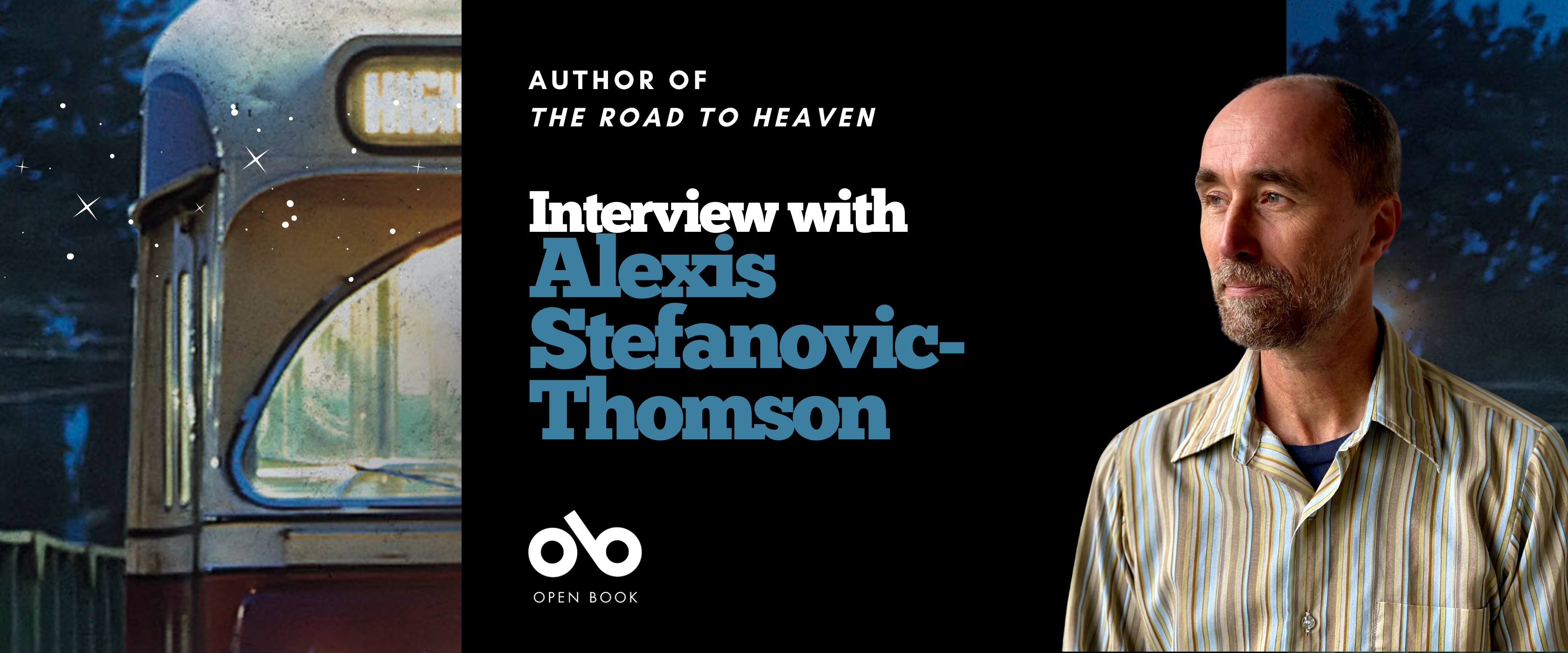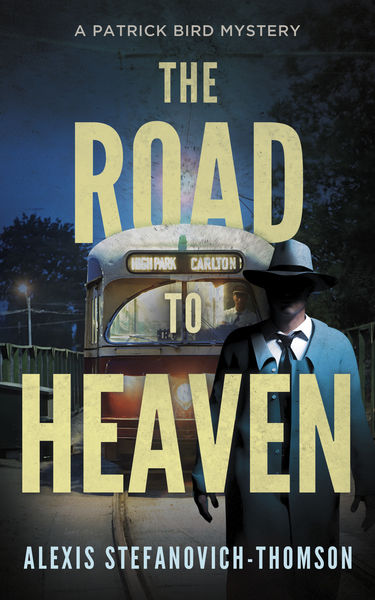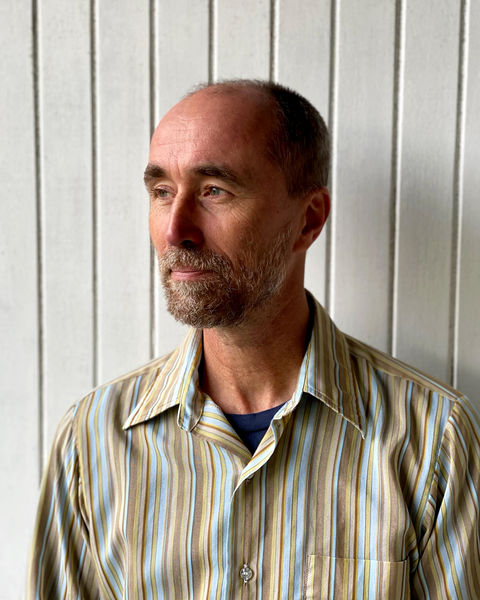Meet the Detective at the Heart of a Gripping Noir Mystery by Alexis Stefanovich-Thomson
As the winner of the 2023 Crime Writers of Canada Best Crime Novella Award, author Alexis Stefanovich-Thomson knows how to grip a reader and draw them into a mystery with a deft literary hand. He moves from strength to strength in his latest novel, a work of noir set against the backdrop of 1960's Toronto, in the famed Parkdale neighbourhood.
In The Road to Heaven, the reader meets young detective Patrick Bird for the first time, and follows the police academy burnout as he works divorce cases and catches evidence of infidelity for those willing to pay him for his services. But only until he's drawn into the search for sixteen-year-old Abbie Linklater, who has been missing for some days. Bird prowls the streets and alleys of Parkdale looking for the girl, having strange and dangerous encounters along the way. All before making a grim discovery that propels his investigation forward.
We're thrilled (no-pun intended) to share this insightful Long Story Novelist Interview with the author, and invite readers into this unique and well-crafted mystery.
Open Book:
How did you choose the setting of your novel? What connection, if any, did you have to the setting when you began writing?
Alexis Stefanovich-Thomson:
But, The Road to Heaven, does not take place in the present—it takes place almost sixty years ago in 1965. And in choosing to write about the sixties, I had a runway on which I could follow detective Patrick Bird, through time, right up into this century, as he grew and aged and the city changed around him. I am interested in Toronto history and how our city, which is still very young, has evolved over time and some of the hidden stories of our past which I could weave into fiction.
And, of course, whenever you write about the past, you are writing about the present as well. You are creating a dichotomy for the reader, who will be saying in their head: “well this is different from how things are now,” and at the same time, thinking, “are things so different?” By creating a parallel world, you invite comparison.
OB:
Did the ending of your novel change at all through your drafts? If so, how?
AST:
It is essential to get the ending of a mystery right. The writer needs to have an ending that is able to walk the tightrope of being both a surprise, and at the same time, something that is believable—or ideally, inevitable.
Also, a technical piece that is tricky, is that when you write in the first person, the reader is, for the most part, privy to the main character’s thoughts. Classic whodunits have a first person narrator who is not the detective to solve this problem: Holmes has Watson, Poirot has Captain Hastings, and Nero Wolfe has Archie Goodwin. If the reader is in Sherlock Holmes’ head for the entire story, the mystery would be solved much earlier in the narrative. Patrick Bird, in The Road to Heaven, doesn’t have this second character, and so the revelation of who the murderer is has to come to him and be revealed to the reader at the right moment and in the right way.
Your CanLit News
Subscribe to Open Book’s newsletter to get local book events, literary content, writing tips, and more in your inbox
So, you can see, it’s essential to get the ending get right, but it’s not so simple. And without giving anything away, I will say I did rework the ending several times; not the “who” of the whodunit, but the details about how the answer comes to the detective, Patrick Bird, how he confronts the killer, and how the killer and the others in the story respond.
OB:
Did you do any specific research for this novel? Tell us a bit about that process.
AST:
The Road to Heaven takes place in 1965 in the Parkdale and High Park neighbourhoods, so there was a fair amount of research necessary to ensure that I got the historical details right. I did get some site research in actual physical spaces where scenes from the novel take place, including the High Park Library, the Skyline Restaurant, and St. Matthias Anglican Church on Bellwoods Ave. I did some reading of print materials; for example, I found a copy of a small self-published history of the Boulevard Club that provided me with photos and information about what the club was like in the sixties. I also read Toronto true crime books by Nate Hendley, Brian Vallee, and Peter McSherry which provided much important background for this novel. And lastly, I looked at a lot of images on the computer to help with ideas such as sixties fashion and cars. I use Google image when I write. I find that having an image of a space, object or character, helps me with details, and is very useful for continuity issues.
OB:
Did you celebrate finishing your final draft or any other milestones during the writing process? If so, how?
AST:
The strange thing I discovered in writing this my first novel for publication, is that there are many milestones in the process that seem final at the time. There is finishing the first draft; there is sending of the manuscript to a publisher; that first email of acceptance; signing the contract; the counter-signing of the contract!; receiving that first installment of the advance; the rewriting and developmental edits; the copy edits; proofreading; receiving the advanced reading copy; final final edits!; the final final draft (more anxiety-inducing than celebratory). And now, at the time of this interview, the publication date and book launch are still a few weeks away. I think that day will feel final, although perhaps it will seem different in retrospect. So, yes: lot’s of opportunities to celebrate! On at least a couple of those occasions my partner Lara and I went to the Skyline Restaurant (where several of the scenes of The Road to Heaven take place) for dinner and a drink.
OB:
Who did you dedicate your novel to, and why?
AST:
I dedicated this book to my partner Lara. We have been together now for over thirty years and she was the one who suggested to me that I write a mystery. Lara is my best critic in writing and in life; we all need someone who can speak the truth and have us hear it and I am so lucky to have her.
OB:
What if, anything, did you learn from writing this novel?
AST:
I am not a planner in my writing, and I think that is a difficult way to write a mystery; you need to have a certain idea of where you are going. I had many ideas, some of them quite specific, about what would happen in the book, but I also have to say that I trusted to the creative process, and what I can say is that I really learned how powerful it is.
I wrote the first draft of this novel during the height of the pandemic. I wrote for an hour every morning before I started my work day. Every evening, after work, I would take a walk for an hour or more and think about the story and where it was going and what I would write the next day. Now that the pandemic is over, I have, for the most part, maintained my morning writing routine, but I find currently, it is very difficult to find extra time in the day, when life is peaceful, to drift into that open state which allows the story to reveal itself to you. More than anything, what I learned from writing this novel is the power of this creative process -- how if you trust it, it will find you and even lift you up.
In writing my second book, I have done more planning; but at the same time I am reluctant to do too much, because I fear it will kill those inexplicable revelatory moments when the story comes to you.
_______________________________________
Alexis Stefanovich-Thomson won the 2023 Crime Writers of Canada Best Crime Novella Award. The Road to Heaven is his first novel featuring detective Patrick Bird. He lives in Toronto.







